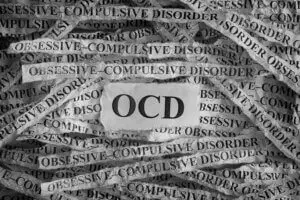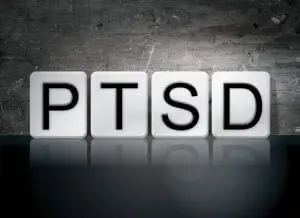Depression: Finding Support in the Struggle
November 1, 2022

Depression is one of the most common mental disorders in the US and is an illness that can affect anyone regardless of age, race, income, culture, or education. As Christians, we are not immune to depression. As we explore the Bible, we see many of its heroes experienced symptoms of depression.
Although the Bible does not overtly use the term depression, we see many biblical figures who encountered its effects. We know David suffered many traumas in his life and lamented in several verses.
In Psalm 38:6 and 8, David wrote, “I am bowed down and brought very low; all day long I go about mourning. … I am feeble and utterly crushed; I groan in anguish of heart” (NIV). In Psalm 42:5, he asked, “Why, my soul, are you downcast? Why so disturbed within me?” He cried out to God for help and prayed, “Answer me quickly, Lord; my spirit fails. Do not hide your face from me or I will be like those who go down to the pit” (Psalm 143:7).
Other examples include Job, Jeremiah, and Elijah, who all journeyed through emotional distress with symptoms such as loss of hope, immense despair, lingering sadness, shame, and even passively suicidal events.
In 2021, the Boston University School of Public Health reported elevated rates of depression have worsened, climbing to 32.8 percent and affecting one in every three American adults. Current research suggests depression is caused by a combination of genetic, biological, environmental, and psychological factors. For example, per the National Institute of Mental Health, risk factors may include a family history of depression, a major life change, experiencing trauma, and stress factors. It may even occur with serious medical conditions or be a side effect from medications.
Symptoms
Sadness is a part of normal life and can be attributed to events and experiences, but it is important to differentiate between sadness and depression. Depressive features include feelings of sadness that become prolonged and intense, last from months to years, and elapse into depression. Generalized feelings of worthlessness, apathy, and physical changes with sleep, appetite, and decreased energy also may occur. Symptoms caused by major depression can vary from person to person and may be dependent upon age. Other indicators include the following:
- “Empty” mood, pessimism, irritability
- Feelings of guilt, helplessness
- Loss of interest or pleasure in hobbies and activities
- Moving or talking more slowly
- Feeling restless or having trouble sitting still
- Difficulty concentrating, remembering, or making decisions
- Early-morning awakening or oversleeping
- Weight changes
- Aches or pains, headaches, cramps, or digestive problems without a clear physical cause and/or that do not ease even with treatment
- Thoughts of death or suicide or suicide attempt
Diagnosis
A doctor may determine a diagnosis of depression based on physical exams, lab tests, psychiatric evaluations, and utilizing the Diagnostic and Statistical Manual of Mental Disorders, or DSM-5, published by the American Psychiatric Association.
The two common forms of depression include major depression and persistent depressive disorder (dysthymia). Major depression causes serious, persistent feelings of sadness and other symptoms that make functioning or enjoying life very difficult. Persistent depressive disorder is a milder but more chronic and lasting form of depression.
Criteria for the diagnosis include experiencing five depressive symptoms every day for at least two weeks, and one of the symptoms must be a depressed mood or loss of interest or pleasure in almost all activities. Other forms of depression include perinatal and/or postpartum, seasonal affective disorder, and depression with symptoms of psychosis. Individuals experiencing bipolar disorder also experience depression.
Treatment
Depression is a common mental health disorder, yet some people may experience shame, fearfulness, and loneliness, and they may avoid seeking help even though depression is highly treatable, especially when treatment is provided early and consistently. As a result, they can manage symptoms and return to feelings of control and enjoyment.
Treatment is typically a combination of psychotherapy, medications, social support, and education. Antidepressants are often used to treat depression, along with cognitive behavioral modalities and interpersonal therapy. Treatment plans are developed with a professional mental health provider and are individualized based on the person’s needs, such as the type of depression and intensity of symptoms. Identifying personal preferences and goals is important as there is no one-size-fits-all treatment.
Ways to Support
Receiving support from loved ones is crucial for those experiencing depressive symptoms.
- Listen with understanding, with patience, and without judgment.
- Offer encouragement through prayer, assist with positive thoughts through sharing happy memories, and remind them of their capability to feel enjoyment again.
- Provide practical support—help with meals, chores, and appointments.
- Encourage physical activity and social interactions.
- Avoid trying to “cheer them up” or stating “snap out of it.”
- Encourage professional help.
- Don’t give up on them.
Dr. Pam Whitaker serves as senior vice president of program development at One More Child, a ministry that provides Christ-centered services to vulnerable children and struggling families. As a Licensed Mental Health Counselor serving children and families for many years, she has witnessed the value of sound mental health that has provided helpful navigation through the stressors of life, resulting in personal growth and spiritual development.
Disclaimer: The information shared on this page is not meant to diagnose or treat a mental health condition. We encourage you to follow up with your health-care provider and seek a mental health professional for individual consultation and care.























